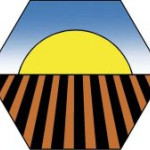- 行业: Earth science
- Number of terms: 26251
- Number of blossaries: 0
- Company Profile:
An international scientific society that fosters the transfer of knowledge and practices to sustain global soils. Based in Madison, WI, and founded in 1936, SSSA is the professional home for 6,000+ members dedicated to advancing the field of soil science. It provides information about soils in ...
(i) A soil developing from recently deposited alluvium and exhibiting essentially no horizon development or modification of the recently deposited materials. (ii) When capitalized the term refers to a great soil group of the azonal order consisting of soils with little or no modification of the recent sediment in which they are forming.
Industry:Earth science
A network of mottles with no dominant color, most commonly found in deeper horizons of soils containing plinthite.
Industry:Earth science
As applied to organic wastes, the potential degree to which organic matter in waste water or sewage can be broken down into simpler and/or more biologically stable products.
Industry:Earth science
A black to dark reddish mineral soil horizon that is usually thin but that may range from 1 mm to 25 mm in thickness. The placic horizon is commonly cemented with iron and is slowly permeable or impenetrable to water and roots.
Industry:Earth science
A great soil group of the intrazonal order, comprised of dark soils of grassy meadows at altitudes above the timberline.
Industry:Earth science
A drainage class referring to soils which have evidence (e.g., mottles) of seasonal water tables at depths between 18 and 36 inches.
Industry:Earth science
A soil layer or horizon in which material carried from an overlying layer has been precipitated from solution or deposited from suspension. The layer of accumulation.
Industry:Earth science
A population of microorganisms composed of a single strain. Such cultures are obtained through selective laboratory procedures and are rarely found in a natural environment.
Industry:Earth science
A microorganism or association of microorganisms that can reduce molecular nitrogen (N2) to ammonia.
Industry:Earth science
